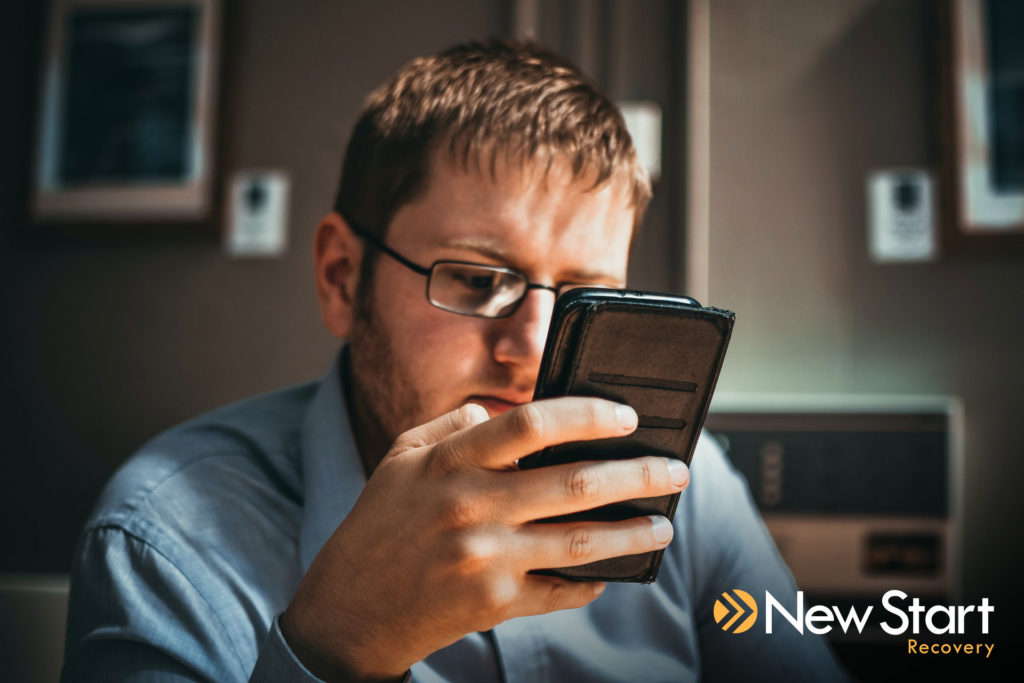Getting treatment is hard enough during normal times. Addicts seeking recovery face so many barriers: dual diagnosis, moving through the stages of change, financial difficulties… the list goes on. And with the horrible pandemic of COVID-19 slogging along, the barrier to getting help can seem more insurmountable. Recognizing this, state regulatory agencies have responded by mandating more comprehensive telehealth coverage from insurance companies in varying degrees. Each state is different, and rapidly changing as the pandemic evolves.

Benefits of Telehealth
Telehealth, as defined by the National Consortium of Telehealth Resource Centers, uses technology to support and promote long distance clinical healthcare, as well as patient and professional health education. This can include telecommunication mediums such as video and/or audio conferencing, which expands healthcare resources to reach underserved communities.
It’s also an excellent facilitator of social distancing during COVID-19. Since the spread of this virus places a heavy burden on health resources, federal and state agencies have made moves to push insurance plans toward covering telehealth services. This is particularly true for addiction care since it is typically one of the more community-oriented treatment structures.
Shifting to telehealth provides the following benefits:
-
Reduces spread
Telehealth shifts visits and evaluations to a modality that prevents disease spread between provider and patient.
-
Allows monitoring of symptoms
Staff can then identify potential and confirmed cases without the risk of spread.
-
Quarantined Clinicians
Clinicians carrying the virus can continue to provide care without risk.
-
Eliminates spread to vulnerable populations
There are two points of contact that present mitigation risks: shared spaces between patients and staff-to-patient contact that can quickly spread disease to vulnerable populations.
Waiver of HIPAA Compliant Platforms
The Health and Human Services Office of Civil Rights (OCR) issued a notice of a change in their HIPAA enforcement discretion. Temporarily, they will not impose penalties for noncompliance with regulatory requirements for telehealth platforms when utilized by covered health care providers.
Providers that wish to use video or audio technology to provide telehealth can use any non-public facing remote communication product during COVID-19, with no penalties if the provider hasn’t entered into HIPAA business associate agreements with said vendor. This includes Apple FaceTime, Google Hangouts, Facebook Messenger video, and Skype.
OCR is a federal agency. States may have their own regulations associated with HIPAA compliance, and the federal ordinance does not address those state laws.
Federal Regulation Changes
This is the official statement from Heath and Human Services regarding the change:
During the COVID-19 national emergency, which also constitutes a nationwide public health emergency, covered health care providers subject to the HIPAA Rules may seek to communicate with patients, and provide telehealth services, through remote communications technologies. Some of these technologies, and the manner in which they are used by HIPAA covered health care providers, may not fully comply with the requirements of the HIPAA Rules.
OCR will exercise its enforcement discretion and will not impose penalties for noncompliance with the regulatory requirements under the HIPAA Rules against covered health care providers in connection with the good faith provision of telehealth during the COVID-19 nationwide public health emergency. This notification is effective immediately.
State Regulation Changes
Changes to state insurance are being made even faster than federal regulations. Increasingly, states are issuing allowances to care providers. This includes methods like allowing providers who do not have access to video technology to use telephonic care, waiving face-to-face requirements, temporarily waiving mandates that providers be covered in the state in which they are providing services (i.e. acknowledging their credentials in their home state), permitting out-of-state professionals to provide needed care to a state’s own Medicaid enrollees impacted by COVID, and temporarily suspending certain provider enrollment and revalidation requirements.
The American Society of Addiction Medicine currently keeps an up-to-date list on individual states’ coverage: https://www.asam.org/Quality-Science/covid-19-coronavirus/national-and-state-guidance
If you or someone you love is suffering from substance abuse, our addiction counselors are available 24/7 by phone: 855-737-7363

